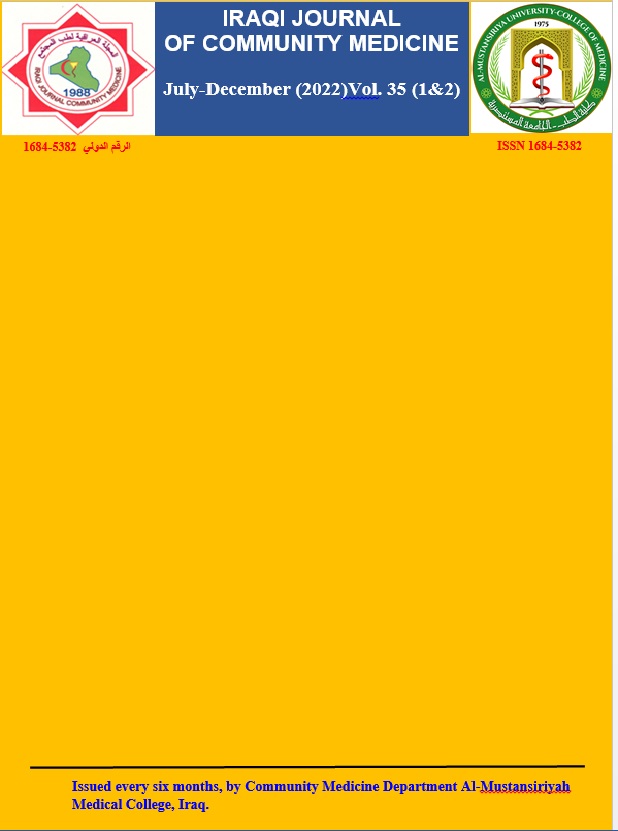Abstract
Back ground: Antenatal care includes education, counseling, screening and treatment to monitor and promote the well-being of the mother and fetus. Objectives: To assess the antenatal knowledge and learning needs of pregnant women attending the Primary Health Care Centers in Baghdad. Methodology: A descriptive cross-sectional study with analytic elements was conducted in the period from the first of March to the end of May 2018. A convenient sample was collected from ten primary health care centers from Al-Karkh and Al-Rusafa sides of Baghdad, the data were collected by direct interview using predesigned and structured questionnaire format. Results: A sample of (500) pregnant women were interviewed during the study period. Their age range (14-43) years with a mean of (26.6±6.2) years. The average age at marriage was (20.9±4.6) years and average age at first baby was (21.7±4.8) years, (30.4%) were primigravida ,(46.2%) had primary education and (80%) of them were not working. More than half of them were (51.4%) in the second trimester of pregnancy and (76.8%) attended for a follow-up visit. The overall mean of the knowledge score was very low (16.7±3.3), (75.8%) had poor knowledge, (23.2%) had acceptable level, and only (1%) had good knowledge. The result of the study revealed a significant association between level of knowledge and antenatal care score (p=0.0001). Conclusion: The study showed that most of the participants were young age (less than 20 years) with limited education. Most of them had poor knowledge about antenatal care, especially regarding the importance of early booking, investigation carried out during ANC visit and danger signs during pregnancy.
Keywords
and learning needs.
antenatal care
Knowledge
